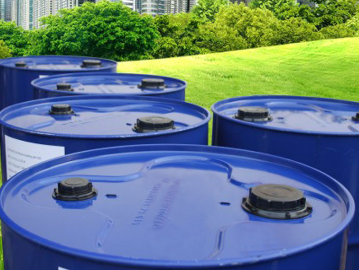
Amine curing agents have a significant influence on the mechanical properties of coatings. Coatings are applied to protect surfaces from various environmental factors such as corrosion, abrasion, and chemical attack. The mechanical properties of coatings, including hardness, adhesion, flexibility, and impact resistance, are crucial for their performance and durability.
One of the main ways amine curing agents influence the mechanical properties of coatings is through crosslinking reactions. Amine curing agents react with the functional groups present in the coating formulation, such as epoxy, polyurethane, or acrylic groups, to form crosslinks. These crosslinks create a three-dimensional network within the coating matrix, improving its mechanical properties.
Firstly, amine curing agents enhance the hardness of coatings. The crosslinks formed by the reaction of amines with epoxy or polyurethane groups increase the crosslink density and strengthen the coating matrix. This results in a harder and more rigid coating that is resistant to deformation, wear, and scratch. The enhanced hardness is particularly important for coatings used in high-traffic areas or where there is a high risk of physical damage.
Secondly, amine curing agents improve the adhesion of coatings to the substrate. The crosslinks created by the reaction of amines with the functional groups in the coating formulation increase the interfacial bonding between the coating and the substrate. This enhanced adhesion prevents the coating from delaminating or peeling off the substrate, even under harsh conditions. Improved adhesion is particularly critical for coatings applied on metal surfaces, as it provides protection against corrosion and promotes long-term coating performance.
Additionally, amine curing agents enhance the flexibility of coatings. The formation of crosslinks by the reaction of amines with the coating matrix increases the elastic behavior of the coating. This increased flexibility allows the coating to withstand deformation or movement of the substrate without cracking or losing its protective properties. Flexible coatings are especially beneficial for applications where the substrate is subject to thermal expansion or contraction, such as on automotive parts or outdoor structures.
Furthermore, amine curing agents contribute to the impact resistance of coatings. The formation of crosslinks by the reaction of amines with the functional groups in the coating formulation disperses the energy generated upon impact, preventing it from being concentrated in one area. This energy dispersion mechanism increases the coating's resistance to cracking or failure when subjected to impact loads. Enhanced impact resistance is especially important for coatings used in environments where there is a high risk of mechanical impact or abrasion.
In summary, amine curing agents play a vital role in improving the mechanical properties of coatings. Through crosslinking reactions, they enhance the hardness, adhesion, flexibility, and impact resistance of coatings, making them more durable and effective in protecting surfaces from the detrimental effects of the environment. The selection of the appropriate amine curing agent in coating formulations should be based on the desired mechanical properties and the specific requirements of the intended application.